COP28 side event on education and youth at China Pavilion
2024-01-03GoldenBee责任编辑0

On December 3, 2023, co-hosted by China Association of NGO Cooperation (CANGO), C Team and China Sustainability Tribune, and supported by China NGO Network for International Exchanges (CNIE), a COP28 side event on “Climate Change Education and Youth Practices Drive Global Sustainability” was successfully held at China Pavilion in Dubai. Representatives of youth, think tanks, enterprises and international organizations were invited to share their views on how to carry forward the innovative spirit, participate in climate governance practices, and contribute to global sustainability.
As a responsible major country, China will need a large number of young people with global competence to assist it in addressing global challenges in its governance of global public affairs. Xiao Lan, researcher fellow of CNIE, mentioned that CNIE attaches great importance to participation in international exchanges and cooperation on climate change, and has coordinated a considerable number of Chinese civil society organizations to convey their voices to the international community at the United Nations Climate Change Conference (UNFCCC) on many occasions. She also mentioned that CNIE is committed to promoting youth participation in global climate governance, and has worked with many Chinese civil society organizations to carry out joint training for young volunteers and send them to serve abroad, with good results achieved. She maintained that sustained, extensive and in-depth climate change education is the key to narrowing the gap and leading a change. She expected that with COP 28 as an opportunity, greater efforts should be made to promote the education and popularization of climate change knowledge in the whole society and to enhance the will and capacity of all citizens, especially young people, to participate in the combat against climate change.
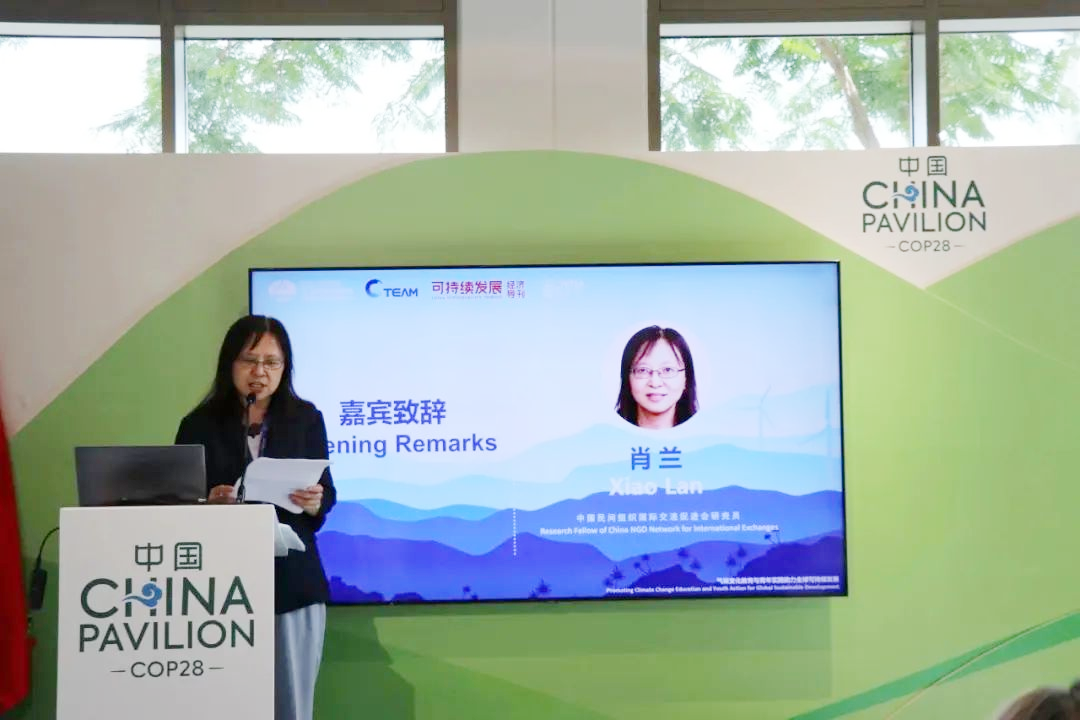
Katja Iversen, CEO of the Museum for the United Nations-UN Live, called for joint actions from three aspects: first, to take the courage to play a leadership role; second, to be a catalyst for innovation in climate governance through innovation and engagement; and third, to inspire others to embrace sustainability through the power of pop culture and arts.
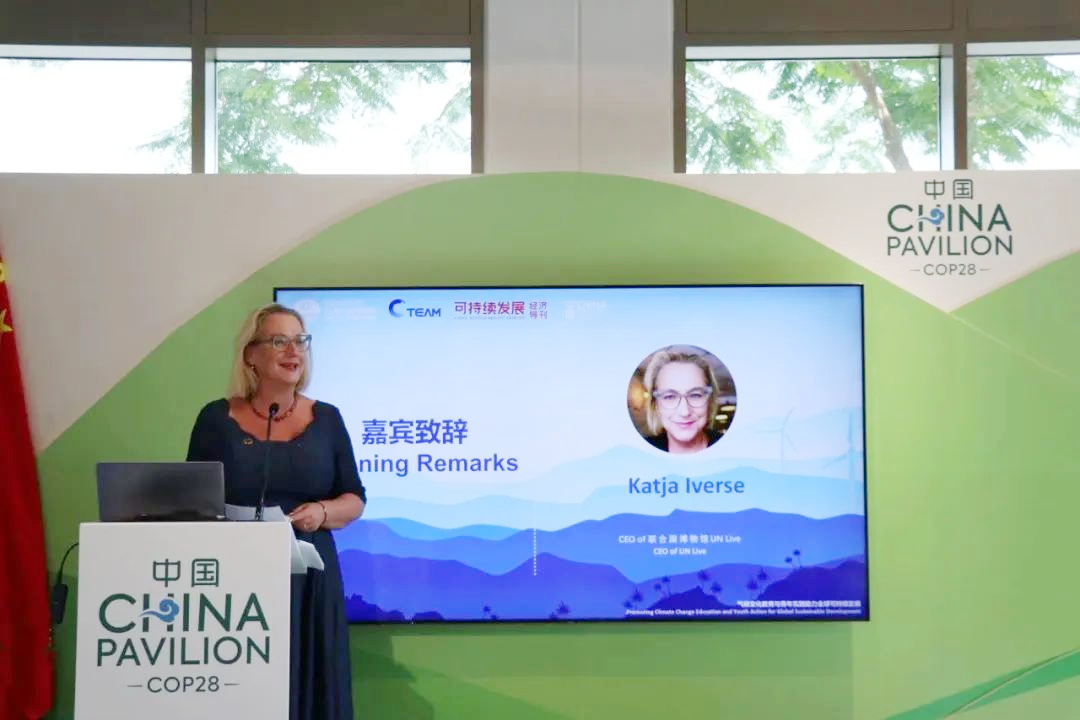
Keynote Speech
At the keynote speech session, a wide range of topics were covered, including youth, social innovation and climate actions. Xiang Nan, Director of International Cooperation of the China Sustainability Tribune, introduced that youth is a pioneering force to promote corporate innovation and sustainability. A batch of youth stood out for contributing to sustainability, especially for promoting innovative practices in tackling climate change, in activities organized by the China Sustainability Tribune like the China Youth SDG Innovation Challenge and the Golden Key-SDG Solutions. One could tell from innovation experiences of these youth that the level of awareness of sustainability, innovation capacity and innovation methods of youth in enterprises, as well as the importance attached by enterprise leaders to youth innovation, and the platforms and support that they provided to the youth, are crucial. She put forward four suggestions to encourage and support youth in sustainability and innovation, such as encouraging enterprises to incorporate supports for youth innovation in sustainability into their strategic planning, organizing and carrying out a variety of activities to help empower youth in the area, launching competitions for selecting and honoring youth innovation in sustainability, and building a professional and international platform for youth to display and exchange their innovative achievements in sustainability.

Feng Xiao, Chairman of Duckgaga Creative Philanthropy Center, shared his ideas and cases of the civil society organization in promoting social and environmental changes through cross-industry innovation in his speech on “Promoting Sustainable Development through Social Innovation.” He expressed that the power of human beings cannot be ignored in the combat against climate change and the realization of sustainability. On one hand, he maintained that it is necessary to find partners with the same values and related resources for collaboration. On the other hand, he expected that more and more people can understand close ties between themselves and the planet through social welfare programs and activities, so as to help them identify problems and needs from their surroundings in a targeted way, and take effective actions in a timely manner.
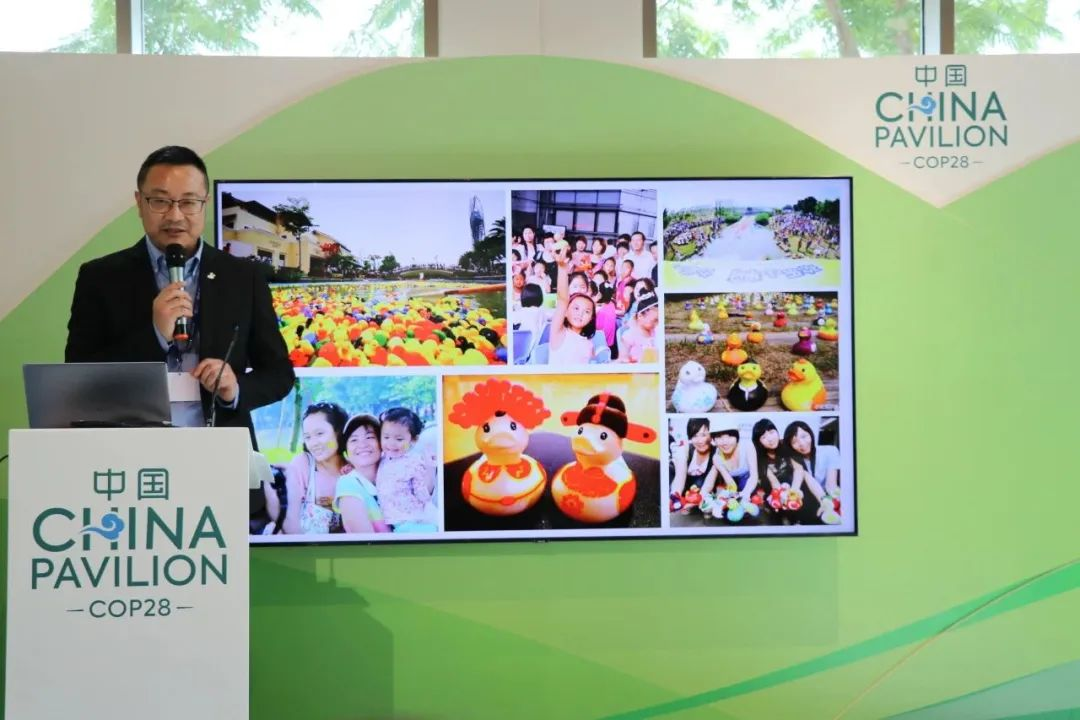
Dai Jianjun, Vice President of Beijing NGO Network for International Exchanges (hereinafter referred to as the Beijing NGO), primarily shared his views that “considerable attempts and efforts have been made by the Beijing Municipal Government and civil society forces in Beijing to actively tackle global climate change and promote sustainability in various aspects, at multiple levels, and in multiple fields.” He emphasized that tackling climate change has become a global responsibility, and Beijing, as a model city of a responsible major country, has been placing ecological civilization construction in a prominent position in its work. Beijing NGO, which serves as a pivotal social organization at the municipal level and one of the earliest social organizations in Beijing which hold a special consultative status with the United Nations Economic and Social Council (UNESCO) and has an observer status with the UNFCCC, has been leading civil society organizations in Beijing to actively participate in global climate governance by organizing global environmental protection activities, creating public welfare activities unique to the municipal city, promoting climate change education, and disseminating the concept of sustainability, so as to offer Beijing’s solutions and wisdom to cope with global climate change.

Joseph Confino, Communications Director of Capitals Coalition, presented stories of young people in his organization who are promoting the benefits of nature. Capitals Coalition is a global collaboration which is composed of more than 400 world-leading institutes and advocates changes in ways of decision-making through an overall review of natural, human, social and production values. It has authored two internationally recognized frameworks, namely the Natural Capital Protocol and the Social and Human Capital Protocol. The majority of members of Capitals Coalition are young people who are passionate about encouraging businesses to value nature and developing frameworks and methodologies to enable scientific decision-making, promoting them globally in multiple languages. Capitals Coalition helps and trains young interns around the world, including many Chinese overseas students, to grasp knowledge and methodologies on nature.
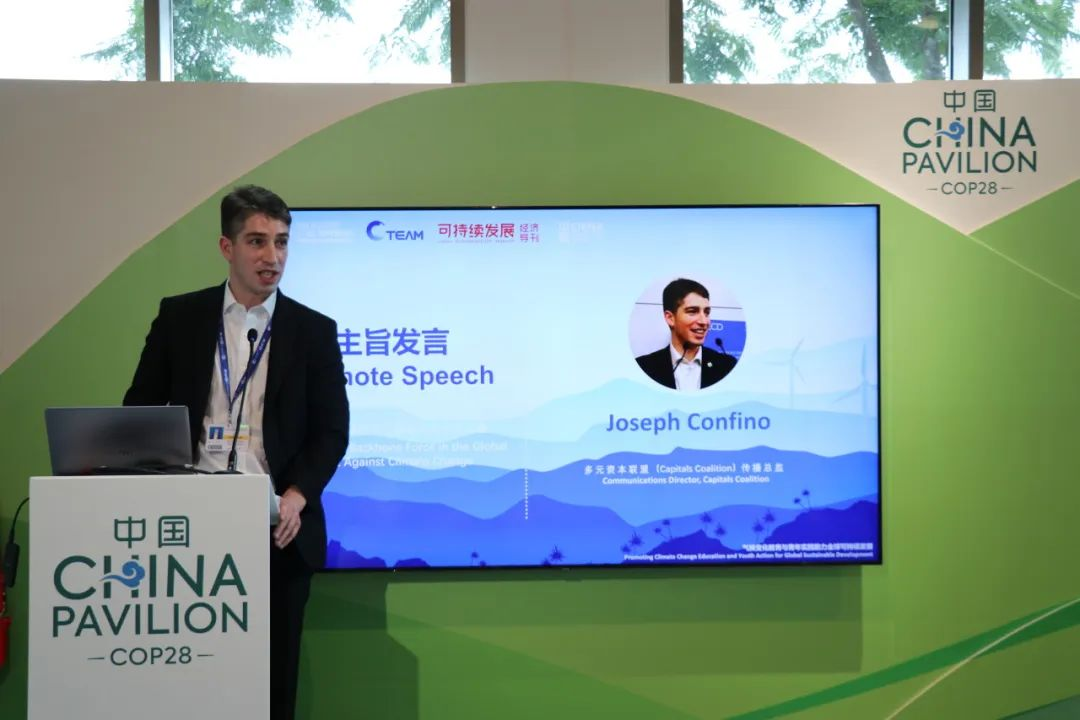
Ana Ramos, Head of Policy and Institutional Affairs at the European Center of the International Humana People to People Federation, shared her experience in the Yunnan Low-Carbon Schools Pilot Project in the hope of creating a model for climate change education in China. In her opinion, what we are facing is the limited awareness and understanding of climate change in general, and there is no universal climate change curriculum for all ages, indicating that creating successful examples of climate change response education can inspire and have a huge impact on education authorities. The project covered the launch of 125 climate compliance student clubs and 10 university student emissions survey teams, the development and teaching of 10 interactive lessons, and the piloting of 601 interactive lectures in 109 demonstration classes of different age groups in schools. Based on related project experience, it contributed to the development of a climate change education toolkit integrating a student club activity kit, online courses, popular science videos, and a personal carbon footprint calculation applet. A total of 846 schools have benefited from their participation in the project, with more than 250,000 offline and 4.5 million online participants.
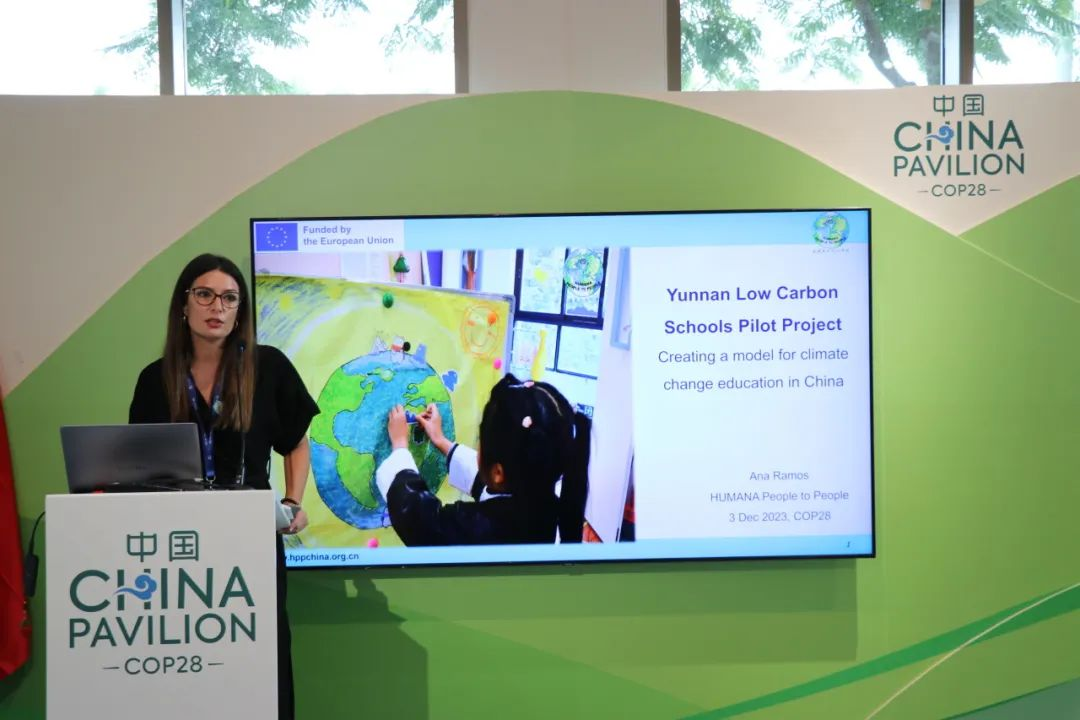
Yang Yuntong, Director of International Cooperation and Program Operation of Phoenix Satellite Television (hereinafter referred to as Phoenix TV), shared media practices and climate communication. Phoenix TV actively uses multiple communication channels to enhance public awareness in sustainability through news and information, special programs and large-scale events. Hong Kong Nature Stories is an annual key program that introduces Hong Kong’s experience in sustainability to the world, and the documentary has also been produced as natural science video lessons and introduced to primary and secondary schools in Hong Kong. The Zero-Carbon Mission International Climate Summit hosted by Phoenix TV has gradually become one of the most important international communication and dialogue platforms on climate change, providing substantial support for enterprises, governments and NGOs to effectively spread their contributions to the SDGs.

Panel Discussion 1
The Panel Discussion centers around two themes: “Multiple Countries’ Practices in Climate Change Education,” and “Efforts towards a Net-Zero Society, Multiple Stakeholders Support Youth to Act on Climate Change.”
At the Panel Discussion 1 on “Multiple Countries’ Practices in Climate Change Education,” Liu Jinmei, Director-General of Friends of Nature, as the moderator, discussed practices of China and Japan in climate education along with participants including Wang Xiangyi, Vice Chairperson and Executive Director of CANGO, Yuiko Mitani, Program Manager of Climate Reality Project Japan, and Cheng Dan, Co-Founder of Plant Technology Alliance. They shared practical experiences and milestones on climate change education. At the same time, they also discussed the convergence and differentiation between climate education and nature and environmental education, as well as new challenges facing climate education.
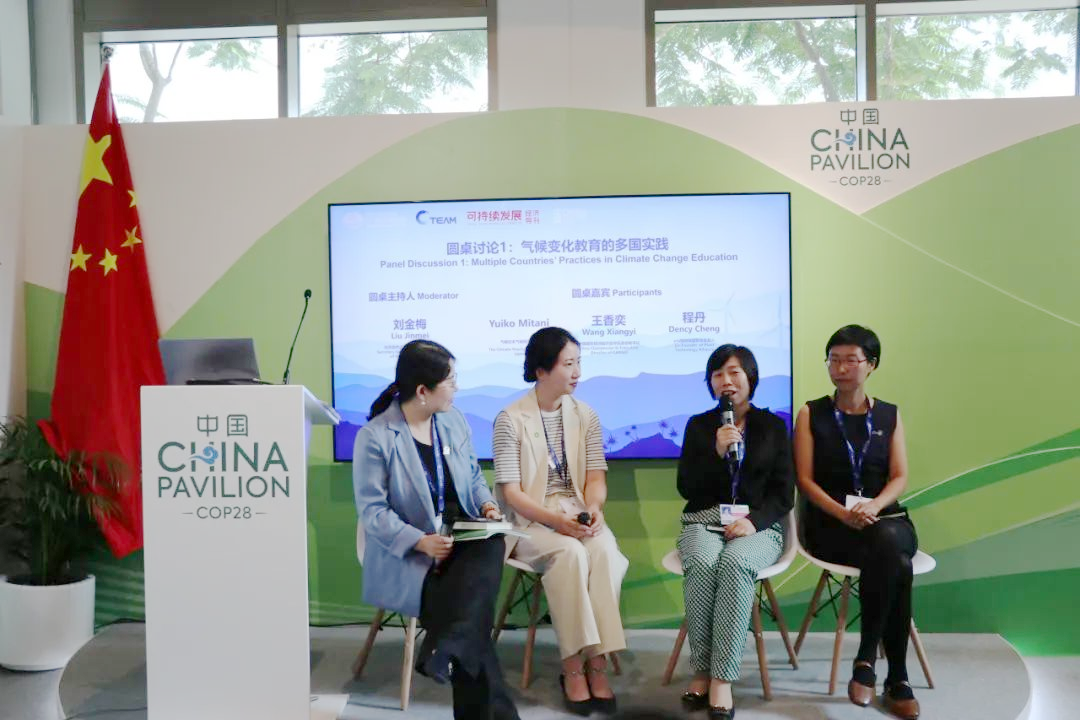
Panel Discussion 2
Panel Discussion 2 was themed “Efforts towards a Net-Zero Society, Multiple Stakeholders Support Youth to Act on Climate Change.” Zhang Kexin, Outreach Advisor of C Team, as the moderator, discussed how multiple social organizations can encourage the youth to act on climate change through practices and address issues concerning carbon neutrality and sustainability, along with participants including Yu Bingqing, Senior Manager of Strategic Development Department of Tencent, Chai Yuhui, Partner of Atomic Foundation, and Li Jia, Associate Director of Industrial Informatics and Intelligence Institute at the Hong Kong University of Science and Technology (Guangzhou).
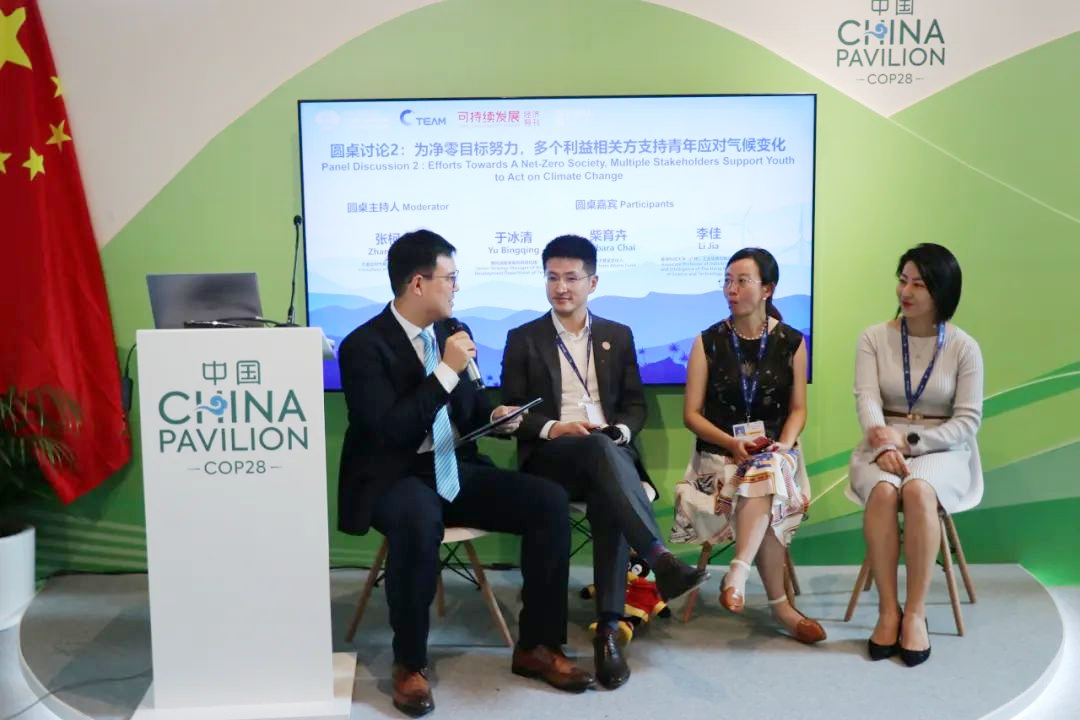
Source: China Sustainability Tribune
Translated by GoldenBee
Best Practices
- The 100-year brand — Air Liquide also has a sense of juvenile
- Beijing Public Transportation Corporation: Developing green transportation to build a harmonious and livable capital
- CGN: Building a modern factory in barren deserts and developing a new win-win cooperation model along “Belt and Road”
Upcoming Event

All the materials on the site “Source: XXX (not from this site)” have been reprinted from other media. They do not imply the agreement by the site.
All the materials with “Source: CSR-China Website” are the copyright of CSR-China Website. None of them may be used in any form or by any means without permission from CSR-China Website.
GoldenBee Official WeChat
Copyright © Csr-china.net All Right Reserved.
京ICP备19010813号










